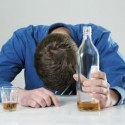Prescription Drug Needs Post Drug Treatment
If you or a loved one is recovering from a drug or alcohol addiction, the need to take prescription medications for an illness or injury can be both dangerous and scary. You don’t want to become addicted to drugs again and yet you know that you need to take the medication. How can you take prescription medications without jeopardizing your hard work and recovery efforts?
There are many things that can trigger addiction and even long after you have completed a drug treatment program there will be a temptation to use drugs which can easily be triggered by life events, people or other situations that once led to your addiction. Even something as simple as a minor injury, illness or surgery that requires you to take a prescription medication for pain can wreak havoc on your recovery efforts sending you back into a whirlwind of addiction if you aren’t careful.
Talking with Your Doctor About Prescription Medication Use after Drug Treatment

Drug treatment can help you overcome current and future addiction problems.
If you are injured or you have suffered some type of illness that requires you to go in for surgery it’s important that you talk with your doctor about your previous addiction to assure that he or she is aware of your previous addiction and the potential for prescription medication use to trigger a further problem for you. It’s not something to be ashamed of if you are in recovery, it’s just something that you need to think about so that you can prevent yourself from being put into a situation that could trigger a future addiction such as one to prescription medications.
Be honest about your addiction and recovery efforts with your doctor and he or she can work with you to assure that you are prescribed medications that will be safe and effective for you. Sometimes you can’t prevent or overcome the need for medication but with a doctor who understands your past a potential relapse may be avoidable despite the need to take prescription medications.
Remain Aware of Your Addiction Post Treatment
Just because you have finished a qualified addiction treatment program does not mean that you can forget about your addiction all together. Your addiction will be a part of your life for the rest of your life. If you are no longer addicted to drugs or alcohol—GREAT! But this doesn’t mean that you can forget that you were once addicted and that the improper use of prescription medications or long term use of such medications can lead to addiction. You’ve been there before, you know what addiction is, how it starts, and what to look out for—don’t forget this when you come to a point in your life when you are taking prescription medications for an illness or injury.
If you or someone you love has overcome addiction and is now facing the need to take prescription medications, call Treatment Centers to speak with a specialist about the precautions and steps you can take to prevent addiction to these medications from occurring. Treatment Centers can refer you to a specialist who can help you maintain your recovery efforts, call 1-888-461-2155 for help.



